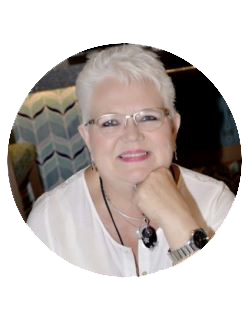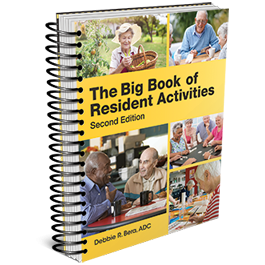 The activity profession is fluid and ever changing. Hiring the best candidate may not always be a simple task. For administrators in long term care, hiring the best person can directly impact resident satisfaction, survey outcomes, and quality of life for those served.
The activity profession is fluid and ever changing. Hiring the best candidate may not always be a simple task. For administrators in long term care, hiring the best person can directly impact resident satisfaction, survey outcomes, and quality of life for those served.
Look at their experience and if they have any. Can someone with no experience truly direct an activity program? During the hiring process, ask the applicant about the regulations to assure they understand those. If your community accepts Medicare/Medicaid funding, the applicant should at the very least understand F tags 679 and 680, but it would be best if they have a grasp of all the regulations that can be affected by activities, such as those for resident or family groups, accommodation of needs, care planning, treatment services for dementia, etc. If hiring for an assisted living community, do they know the state regulation requirements for activities? Not understanding the regulations is a red flag that they may not be the best candidate for the job.
Credentials matter; but dig deeper. Is the activity professional nationally certified and if so, does that certification require a component for activity-related experience and specific activity related to continuing education? There are certifications out there, even those that meet F tag 680, that only require an individual to pay for and take a course, whether online, home study or live, and then they become “certified.” We recommend researching the certification bodies’ criteria to ascertain if the certification is one that would meet your needs. The stronger the certification, the more likely you will be hiring a capable employee. The applicant should be able to show you their certification certificate with a clear expiration date.
The applicant’s interactions with residents can reveal their suitability for the position. Observe how they engage during a community tour, especially with those who have dementia.
Activity professionals must be flexible. Programs never always go according to plan and things happen. They need to be ready to make changes quickly. During an interview, ask them how they manage volunteers and entertainers that do not show up, how they handle a conflict during a bingo game, and how they resolve resident concerns and behaviors. The responses they give will offer insight into their adaptability and conflict-resolution skills.
What is their experience working with those who have dementia? Not everyone has the patience or empathy to work with these individuals. How do they adapt programming to meet the varied needs and abilities.
Have the applicant give you examples of activities that have been successful for them. Ask them to bring sample calendars that they have created. Ensure that all aspects of wellness listed in F tag 679 (autonomy, security, growth, connectedness, identity, joy, and meaning) are addressed. Are physical, social, cognitive, spiritual, creative and sensory activities offered regularly? Is there variety each week? Are weekends and evenings covered? How do they manage holidays? What types of special activities, family activities, and intergenerational activities have they offered? Ask about one-to-one programming and how they determine which residents need that. Also inquire about the groups that were not successful and ask why, and how they adapted the program as it was occurring.
The activity professional needs to manage multiple tasks at any given time. They should be attentive to details and be able to meet deadlines, not only for programming tasks, but for documentation expectations. Large-scale events require extensive planning and multiple steps to be successful. They must be able to work within a budget. Clarify budget expectations up front, so there are no misunderstandings later. Volunteers are a valuable resource for activity professionals for programming needs, entertainment, and one-to-one needs. Ask about their management and recognition of volunteers.
The best professionals are those who pursue ongoing continuing education and remain active in state or national organizations open to them. Ask if and how the applicant stays current with activity trends and regulations by way of activity-related specific continuing education?
 Hiring the right activity professional means finding someone who brings meaning, joy, and connection to those individuals served. With the right questions and observations, you will know when you have found the right candidate for your position.
Hiring the right activity professional means finding someone who brings meaning, joy, and connection to those individuals served. With the right questions and observations, you will know when you have found the right candidate for your position.
Diane Mockbee, BS, AC-BC, is a national speaker for activity-related topics, is a past president of the National Association of Activity Professionals, past president of the Arizona Association of Activity Professionals, and currently serves as director of operations at the Activity Professionals National Credentialing Center. She is a board-certified activity consultant with more than 40 years of experience.
Available at AHCAPublications.org
